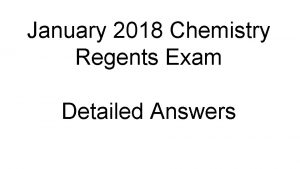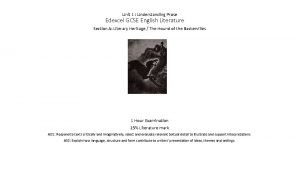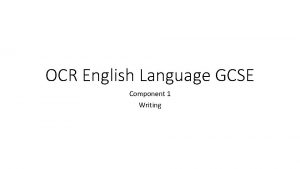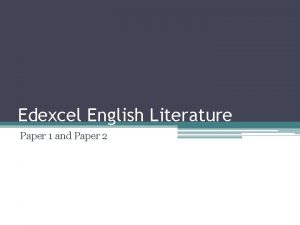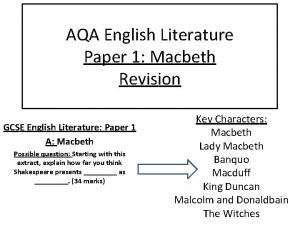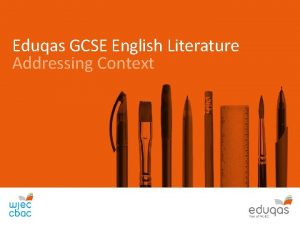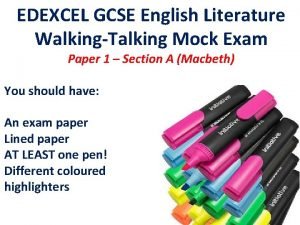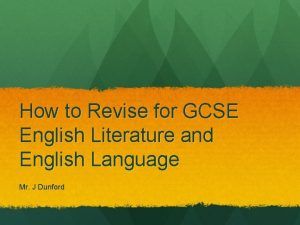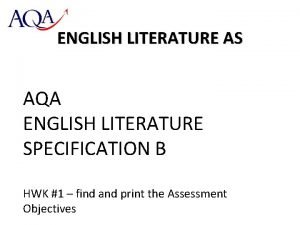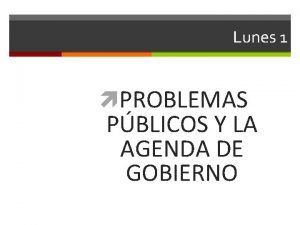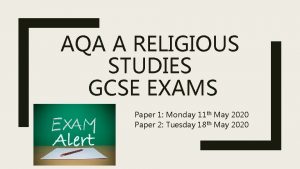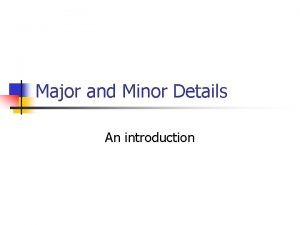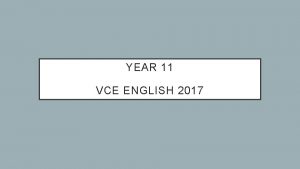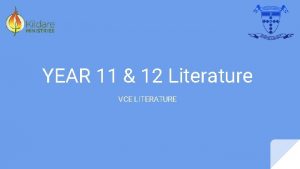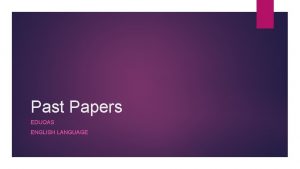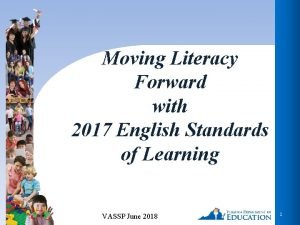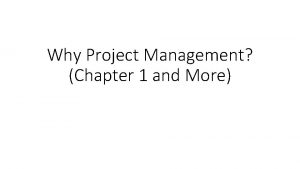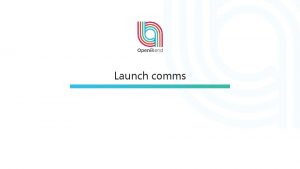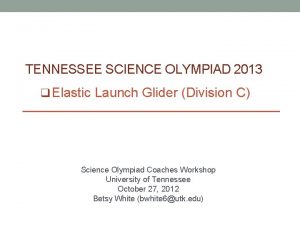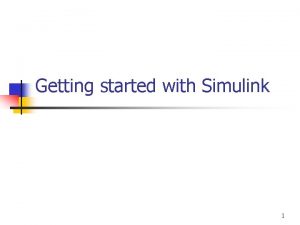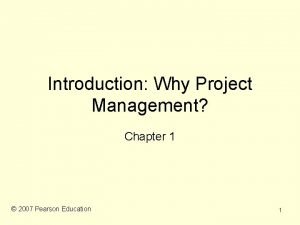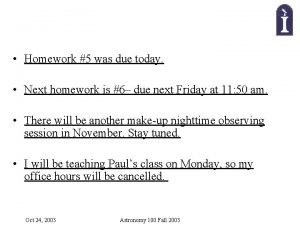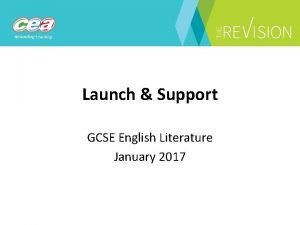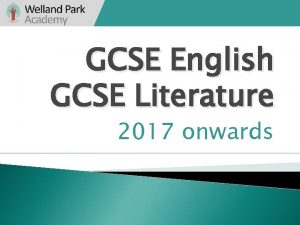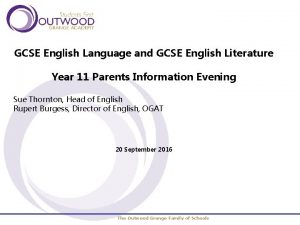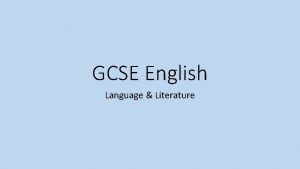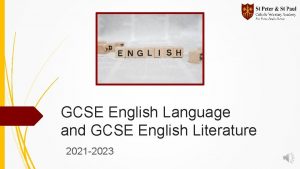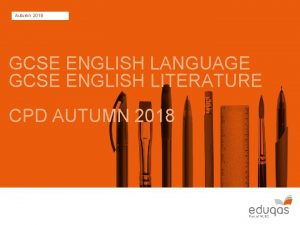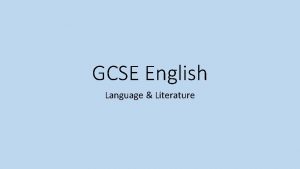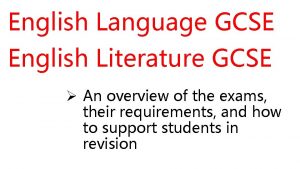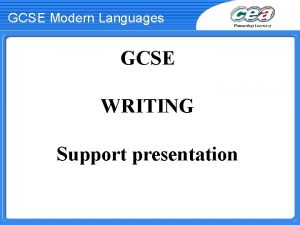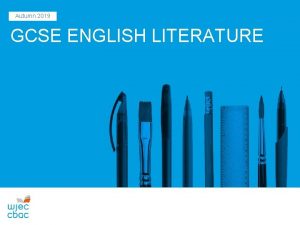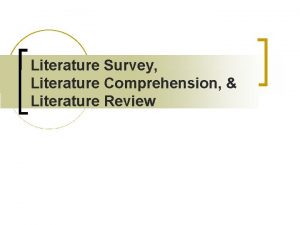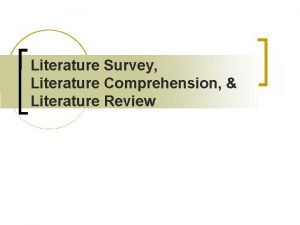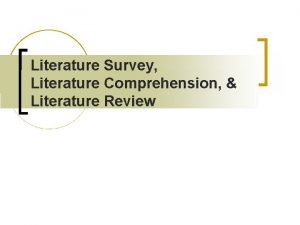Launch Support GCSE English Literature January 2017 Agenda






































- Slides: 38

Launch & Support GCSE English Literature January 2017

Agenda Revision of GCSE Qualifications (for first teaching September 2017) • Introduction • Overview of new Specification • Specimen Assessment Materials (SAMs) • Support Materials • Q&A

Regulatory Framework General Conditions of Recognition CCEA will ensure that each qualification offered is fit for purpose Accreditation Process • N Ireland GCE and GCSE Qualifications Criteria • Two-stage process – Stage 1: submission of qualification strategies for approval – Stage 2: submission of qualification materials for review and accreditation

Qualification Strategies CONTENT - Rationale for the proposed: • inclusion of internal assessment, where relevant • weighting of internal and external assessment • wording and weighting of assessment objectives • assessment of mathematical skills : Biology, Chemistry, Physics, Economics, Business Studies • assessment of QWC and • subject content ASSESSMENT – Rationale for the: • subject content for Specimen Assessment Materials (SAMs) • content in assessments ensuring full coverage over the lifetime of the qualification • duration of examination papers • allocation of marks in examination papers, where appropriate • number and type of questions in examination papers, where appropriate • word limit or time limit for internal assessment and • allocation of marks for internal assessment

Specification and Specimen Assessment Material (SAMs) Northern Ireland Regulator will carry out: • an administrative review • a subject-specific review • a review of regulatory requirements

Collaborative Approach to the Revision • Desk top Research • Writing Teams – Teachers – Higher Education • Consultation – Existing Specifications – Draft Specifications • Consultation with students – Relevant content – Prepared for further study/work

Quality Assurance • Higher Education - Higher Education Panel and Subject Advisory Team • Industry - Industry Panel and Subject Advisory Team • Teachers - Subject Advisory Team • Equality Panel - Access for all • Final CCEA Quality Assurance panel - Review of consultation comment logs and comment logs associated with all QA panels

Quality Assurance • Equality Panel – Access for all • Final CCEA Quality Assurance panel – Review of consultation comment logs – Review of comment logs associated with all QA panels Only when CCEA Quality Assurance panel is satisfied that all issues raised have been appropriately addressed will the Specification and Sample Assessment material be submitted for accreditation

GCSE English Literature Unique features Employability • New specification includes new • This qualification helps students texts available to study – modern develop their skills of critical writers, American literature, local analysis and evaluation whilst also writers - to enrich the learning giving them opportunities to experience of students develop their ability to present cogent arguments • It is a unitised specification so there is flexibility in entering for a • Potential pathway into a range of unit and each unit can be re-sat careers, for example: teaching, law, individually marketing, Public Relations, journalism, etc. • It is linked with GCSE English Language so texts studied in the Literature course can be used as stimulus for Controlled Assessment in English Language.

Specification at a glance Content Assessment • Unit 1: The Study of Prose weighting: 30% • External paper – 1 hour 45 mins • Unit 2: The Study of Drama & Poetry weighting: 50% • External paper – 2 hours • Unit 3: The Study of Shakespeare weighting: 20% • Controlled assessment – 2 hours

GCSE English Literature Unit 1: The Study of Prose • • External paper – 1 hour 45 mins Available from Summer 2018 Worth 30% of the GCSE Students answer two questions: one from Section A on the novel studied (choice of two questions); one set question in Section B • Section A is closed book; worth 40 marks • Section B – response to an unseen extract; worth 20 marks

GCSE English Literature Unit 1: The Study of Prose Section A – Novel • Recommended response time: 1 hour • Choice of 6 novels to study: – – – – William Golding, Lord of the Flies Nick Hornby, About A Boy Jennifer Johnston, How Many Miles to Babylon? Harper Lee, To Kill a Mockingbird John Steinbeck, Of Mice and Men Roddy Doyle, Paddy Clarke Ha Ha Ha George Orwell, Animal Farm • Choice of 2 free-standing* essay questions to respond to – a) or b)

GCSE English Literature Unit 1: The Study of Prose Section B – Unseen Prose • Recommended response time: 45 mins • 15 mins reading the extract; • 30 mins writing the response • One extract and one question • The extract will be sourced from a piece of literature from the 19 th Century • This is a new element for this Revised Specification - support materials will be available to assist teachers in delivering this section

GCSE English Literature Unit 1: The Study of Prose Assessment Objectives for Unit 1 • AO 1 - respond to texts critically and imaginatively; select and evaluate relevant textual detail to illustrate and support interpretations • AO 2 - explain how language, structure and form contribute to writers’ presentation of ideas, themes, characters and settings

GCSE English Literature Unit 2: The Study of Drama and Poetry • • External paper – 2 hours Available from Summer 2019 Worth 50% of the GCSE Students answer two questions: one from Section A on the play studied; one from Section B on the Anthology* studied • Section A and Section B are open book (clean copies of the texts) • Each section is worth 40 marks

GCSE English Literature Unit 2: The Study of Drama and Poetry Section A: Drama • Recommended response time: 1 hour • Choice of 6 plays to study: - Sean O’Casey, Juno and the Paycock J B Priestley, An Inspector Calls Brian Friel, Philadelphia, Here I Come! Willy Russell, Blood Brothers R C Sherriff, Journey’s End Simon Stephens, The Curious Incident of the Dog in the Night-Time • Choice of 1 free-standing* essay question or 1 extract-based question to respond to – a) or b)

GCSE English Literature Please note: there are prescribed editions for each of the plays – see Appendix 2 of the Specification

GCSE English Literature Unit 2: The Study of Drama and Poetry Assessment Objectives for Unit 2 Section A (Drama): • AO 1 - respond to texts critically and imaginatively; select and evaluate relevant textual detail to illustrate and support interpretations • AO 2 - explain how language, structure and form contribute to writers’ presentation of ideas, themes, characters and settings

GCSE English Literature Unit 2: The Study of Drama and Poetry Section B: Poetry • Recommended response time: 1 hour • Choice of 3 anthologies to study (see prescribed lists in Appendix 2 of the Specification): - Anthology 1: Identity (15 poems) Anthology 2: Relationships (15 poems) Anthology 3: Conflict (15 poems) • Each anthology comprises an interesting mix of poets from different cultures

GCSE English Literature Unit 2: The Study of Drama and Poetry Section B: Poetry continued • This section assesses all 4 Assessment Objectives • Students must compare two poems and integrate relevant contextual information into their response • Choice of 2 questions – a) or b) • One poem will be named, the student must select the second poem

GCSE English Literature Unit 2: The Study of Drama and Poetry Assessment Objectives for Unit 2 Section B (Poetry): • AO 1 - respond to texts critically and imaginatively; select and evaluate relevant textual detail to illustrate and support interpretations • AO 2 - explain how language, structure and form contribute to writers’ presentation of ideas, themes, characters and settings

GCSE English Literature Unit 2: The Study of Drama and Poetry Assessment Objectives for Unit 2 Section B (Poetry): • AO 3 - make comparisons and explain links between texts, evaluating writers’ differing ways of expressing meaning and achieving effects • AO 4 - relate texts to their social, cultural and historical contexts; explain how texts have been influential and significant to self and other readers in different contexts and at different times

GCSE English Literature Unit 3: The Study of Shakespeare • • Controlled assessment – 2 hours Available for moderation from Summer 2019 Worth 20% of the GCSE The level of control for task setting is high. This means that we set the task. • Tasks will change each year. • Centres must choose their task from the list we provide. The question must enable a response to the whole play. • Teachers mark the responses then CCEA moderate

GCSE English Literature Unit 3: The Study of Shakespeare • Controls – Planning and prep work can be done under limited supervision – i. e. can be homework, group work – Direct/formal supervision of production of final piece (i. e. piece being marked and available for moderation). This means candidates must be in direct sight of the supervisor at all times. Use of resources and interaction with other candidates is tightly prescribed

GCSE English Literature Unit 3: The Study of Shakespeare • Controls (continued) - 2 hour time limit given for final write-up (final production) – doesn’t all have to be in one sitting; work must be stored securely after each sitting - Students must not have access to work completed in between controlled sessions and no feedback can be given in between sessions • Please ensure you are familiar with the Joint Council for Qualifications(JCQ) document Instructions for Conducting Controlled Assessments, available at www. jcq. org. uk

GCSE English Literature Unit 3: The Study of Shakespeare • Students complete one extended writing task on a set theme • The themes for first moderation in 2019 are: Theme 1: Conflict or Theme 2: Love

GCSE English Literature Unit 3: The Study of Shakespeare (Please see Appendix 3 of the Specification) Conflict tasks: 1. Examine the way Shakespeare presents theme of conflict in your chosen play. 2. Examine the way Shakespeare presents conflict between characters in your chosen play.

GCSE English Literature Unit 3: The Study of Shakespeare Love tasks: 3. Examine the way Shakespeare presents theme of love in your chosen play. 4. Examine the way Shakespeare presents love between characters in your chosen play.

GCSE English Literature Unit 3: The Study of Shakespeare Assessment Objectives for Unit 3: • AO 1 - respond to texts critically and imaginatively; select and evaluate relevant textual detail to illustrate and support interpretations • AO 2 - explain how language, structure and form contribute to writers’ presentation of ideas, themes, characters and settings • AO 4 - relate texts to their social, cultural and historical contexts; explain how texts have been influential and significant to self and other readers in different contexts and at different times

Quality of Written Communication • QWC is assessed in every Unit and Section as each require extended writing • Students should: – ensure that text is legible and that spelling, punctuation and grammar are accurate so that meaning is clear; – select and use a form and style of writing that suit their purpose and complex subject matter; and – organise information clearly and coherently, using specialist vocabulary where appropriate.

Terminal Assessment Rule Reminder Students must take at least 40% of the assessment at the end of the course

Q&A

GCSE Support Type of Support Date Sample assessment materials Rolling basis from January 2017 Student guides/subject Snapshots Rolling basis from January 2017 Microsites Rolling basis from January 2017 Planning Frameworks Rolling basis from January 2017 Fact files Rolling basis from March 2017 Bespoke Materials Rolling basis from March 2017 Support Events Ongoing

Support for GCSE English Literature • Each Unit of the Revised Specification has a number of support documents. In addition to the Planning Frameworks and Fact files the Resource Writing Team have also created: – Glossary of key terms – Poetry ‘Toolkit’ – Power. Points to guide students through the structure of the Units and how best to approach each Unit/Section

Contacts: GCSE English Literature Education Manager: Olivia Mc. Neill Telephone: 028 90 261200 Ext 2963 Email: omcneill@ccea. org. uk Subject Support Officer: Joan Jennings Telephone: 028 9026 1439 Email: jjennings@ccea. org. uk Specification, sample assessment and support materials available on the subject microsite at www. ccea. org. uk

Why choose CCEA? We support Learners - CCEA puts the learner at the centre of everything we do. We think about what learners need for life and work and then build solutions to meet those needs. We do this for the entire curriculum – from Foundation and Early Years to A level and beyond. We are Local - CCEA is Northern Ireland’s awarding body. We understand local needs and we are focused on providing services and products for learners in Northern Ireland. This also means we’re near you, should you need help or support. We are Listening - CCEA listens to those who use its products and services; this means listening to teachers, employers and learners, and taking action to ensure better outcomes for learners. This approach ensures that we develop relevant, high quality and innovative specifications and support.

Working with CCEA The benefits: – teacher cover provided – first-hand experience of how the examining system works – user insight to the standards required for the assessment – opportunity to examine assessments across a range of abilities – improved learning and teaching outcomes – creates links with CCEA personnel/subject officer – opportunity to network with other professionals – provides recognition and enhances the professional development of teachers

Keeping you informed • The Re. Vision microsite – ccea. org. uk/therevision • Essential updates • Specifications & SAMs • Monthly e-Vision newsletter • Subject specific e-alerts Face to face • Social media • Twitter @ccea_info • Facebook ccea. info • Don’t forget to register for your updates on the microsite – ‘keep up to date’ section www. ccea. org. uk/therevision
 Chemistry regents january 2018 answers
Chemistry regents january 2018 answers Edexcel gcse english literature
Edexcel gcse english literature Gcse speech example
Gcse speech example Igcse edexcel english literature paper 1
Igcse edexcel english literature paper 1 Paper 1 literature aqa
Paper 1 literature aqa Wjec eduqas gcse poetry anthology
Wjec eduqas gcse poetry anthology Macbeth edexcel exam questions
Macbeth edexcel exam questions How to revise for english literature gcse
How to revise for english literature gcse Aqa english specification
Aqa english specification Edexcel inspector calls exam questions
Edexcel inspector calls exam questions Gartner cio agenda
Gartner cio agenda Agenda sistemica y agenda institucional
Agenda sistemica y agenda institucional Rs aqa gcse past papers
Rs aqa gcse past papers Father of english tragedy
Father of english tragedy Signal words examples
Signal words examples Vce english bell curve
Vce english bell curve Vce english text list 2017
Vce english text list 2017 Staar released writing prompts
Staar released writing prompts Wjec eduqas english language past papers
Wjec eduqas english language past papers 2017 english standards of learning curriculum framework
2017 english standards of learning curriculum framework Narrow product launch windows
Narrow product launch windows Product launch formula template
Product launch formula template National programme for health care of elderly
National programme for health care of elderly Launch out into the deep
Launch out into the deep Ideas for yammer posts
Ideas for yammer posts The openblend podcast
The openblend podcast Optimal driver launch angle and spin rate chart
Optimal driver launch angle and spin rate chart Wbs product development
Wbs product development Narrow product launch windows
Narrow product launch windows Elastic launch glider
Elastic launch glider Launch housing vacancies
Launch housing vacancies Jwst launch
Jwst launch Launch simulink
Launch simulink James webb space telescope nasa
James webb space telescope nasa Fighter brand meaning
Fighter brand meaning Kendra legge
Kendra legge Narrow product launch windows
Narrow product launch windows Astr 100 uiuc
Astr 100 uiuc First nations launch
First nations launch
